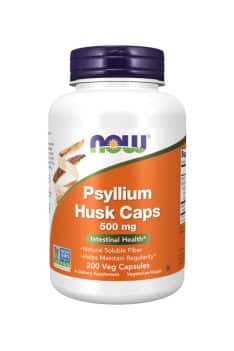Do you ever wonder why your stomach often feels like a balloon about to burst? Or why those digestive troubles just won’t give you a break? You’re not alone. Bloating and digestive issues can be a real pain in the gut, affecting countless individuals in their daily lives. But worry not because we’re here to unravel the mysteries behind these discomforts and offer you practical solutions that work. In this blog, we will discuss 4 supplements that can help reduce bloating and aid healthy digestion.
What causes bloating and digestive discomfort?

Before we get into the 4 recommended supplements, let’s start with the cause of bloating. Bloating and digestive discomfort can disrupt even the best of days, leaving us searching for answers. While there can be various triggers for these issues, four common culprits often lie at the heart of the matter.
Gas Buildup
One of the primary causes of bloating is the accumulation of gas in your gastrointestinal tract. This can happen for various reasons, such as swallowing air while eating or drinking, consuming gas-producing foods like beans, broccoli, or carbonated beverages, or due to a slower transit of food through your intestines, which allows gas to accumulate.
Dietary Factors
What you eat impacts how your digestive system functions. High-fiber foods like beans and cruciferous vegetables, while incredibly nutritious, can also lead to bloating, as they are more challenging to digest. Moreover, certain artificial sweeteners, such as sorbitol and xylitol, can cause bloating.
Incomplete Digestion
Inadequate digestion of food can result in undigested particles entering the colon, where they become fermented by bacteria. This fermentation process can produce gas, leading to abdominal distension and discomfort. Insufficient production of digestive enzymes and stomach acid can contribute to incomplete digestion.
Gut Microbiome Imbalance
The trillions of microorganisms residing in your gut play a pivotal role in your digestive health. An imbalance in your gut microbiome, with an excess of harmful bacteria or a lack of beneficial bacteria, can disrupt digestion and lead to bloating. This imbalance can result from factors such as antibiotics, a high-sugar diet, or chronic stress.
Four Supplements for Poor Digestion and Bloating
We’re about to explore four remarkable supplements that could be the key to reducing digestive comfort. These supplements are not just remedies; they are science-backed allies in your quest to bid farewell to bloating.
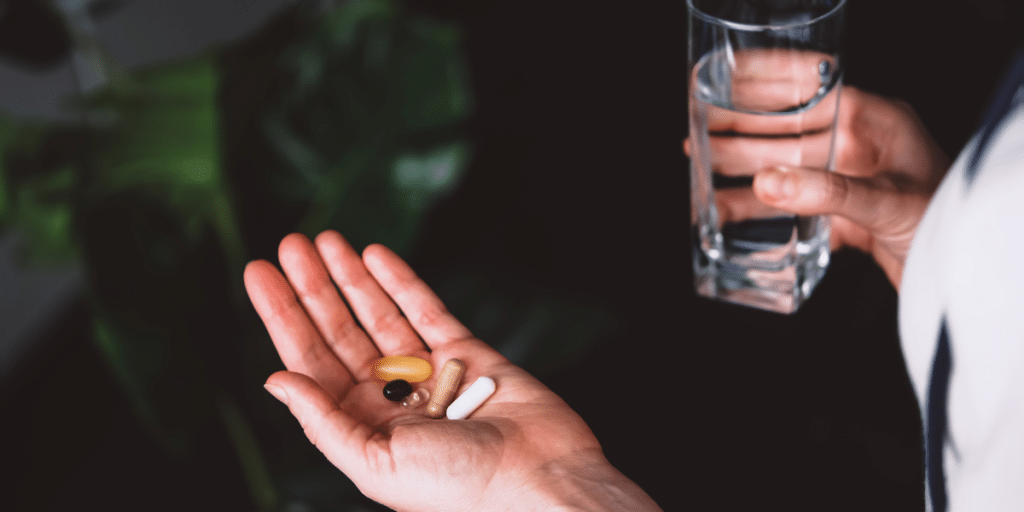
Chlorophyll
Chlorophyll, the green pigment in plants, is often called “nature’s detoxifier.” Its potential to alleviate bloating lies in its unique properties. Chlorophyll can work its magic by reducing gas production in the gut and providing a soothing effect on the digestive system. How does it achieve this? Well, chlorophyll has a molecular structure similar to hemoglobin, the protein that transports oxygen in our blood. This similarity allows chlorophyll to aid in oxygen transport, which can improve circulation and help alleviate digestive discomfort.
Additionally, it possesses anti-inflammatory and antioxidant properties, which can reduce inflammation in the gastrointestinal tract, making it a natural solution to bloating. Chlorophyll’s influence extends to the gut microbiome, where it can promote the growth of good bacteria. By fostering an environment conducive to good bacteria, chlorophyll contributes to a harmonious gut ecosystem that minimizes gas production and supports digestive comfort.
-
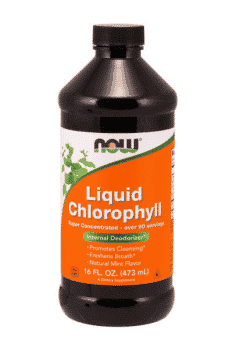 Now Foods Chlorophyll Liquid€26.99
Now Foods Chlorophyll Liquid€26.99
Probiotics
Probiotics are living microorganisms, often referred to as “good bacteria,” that take up residence in your gut. These friendly microbes are vital in maintaining a healthy gut microbiome, which is essential for efficient digestion. When the balance of beneficial and harmful bacteria in the gut is disrupted, it can lead to various digestive issues, including bloating. Probiotic supplements are like reinforcements for your gut’s defense forces. They can restore the balance of microflora, aid in the breakdown of food, and reduce gas production.
-
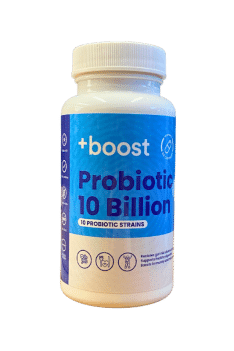 +boost Probiotic 10 Billion€19.99
+boost Probiotic 10 Billion€19.99 -
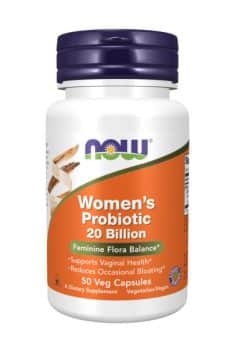 Now Foods Women’s Probiotic 20 Billion Veg Capsules€31.99
Now Foods Women’s Probiotic 20 Billion Veg Capsules€31.99 -
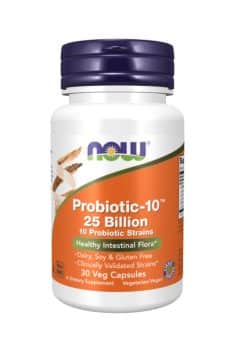 Now Foods Probiotic-10, 25 Billion€19.99 – €29.00
Now Foods Probiotic-10, 25 Billion€19.99 – €29.00
Psyllium
When it comes to bloating, psyllium is a true hero. This dietary fiber can absorb water and form a gel-like substance in the digestive tract. As this gel moves through the intestines, it can promote regular bowel movements and help alleviate constipation, a common cause of bloating. Furthermore, psyllium can reduce the fermentation of undigested food particles in the colon, often leading to gas and bloating.
Digestive Enzymes
Digestive enzymes are naturally occurring substances in your body that assist in breaking down food into smaller, more digestible components. However, sometimes the body doesn’t produce enough of these enzymes, leading to incomplete digestion and subsequent bloating. Digestive enzyme supplements provide the necessary enzymes to support the digestive process. For example, amylase helps break down carbohydrates, lipase assists in digesting fats, and protease aids in breaking down proteins. By enhancing the breakdown of food, digestive enzyme supplements can reduce the likelihood of undigested food particles fermenting in the gut, thus minimizing gas and bloating.
-
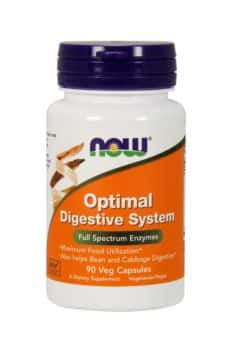 Now Foods Optimal Digestive System€21.99
Now Foods Optimal Digestive System€21.99 -
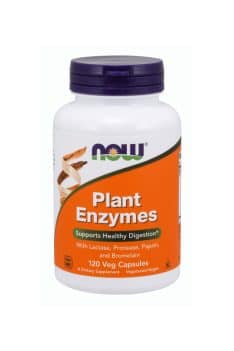 NOW Foods Plant Enzymes€18.25
NOW Foods Plant Enzymes€18.25
Conclusion
Throughout the blog, we’ve delved into one of the most common and pesky digestive issues: bloating, shedding light on the common culprits that can leave us feeling less than our best. We’ve explored how factors like gas buildup, dietary choices, incomplete digestion, and gut microbiome imbalances can trigger these uncomfortable sensations. While maintaining a healthy lifestyle through a well-rounded diet and regular exercise is vital, there’s no denying that these everyday challenges can persist. That’s where supplements come to the rescue. We’ve discussed the science behind four notable options: chlorophyll, probiotics, psyllium, and digestive enzymes. Each of these supplements offers a unique approach to tackle bloating, from reducing gas production to supporting good gut bacteria and ensuring smoother digestion. With this information in hand, you’re now equipped to take control of your digestive well-being and bid farewell to bloating’s discomfort.

